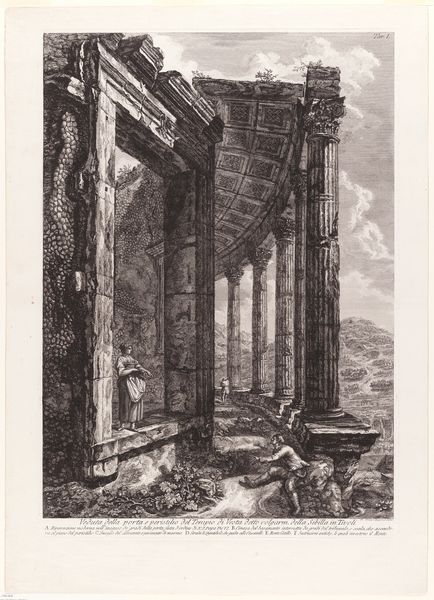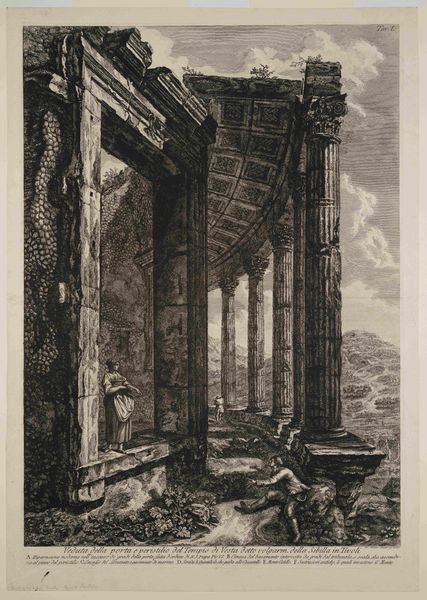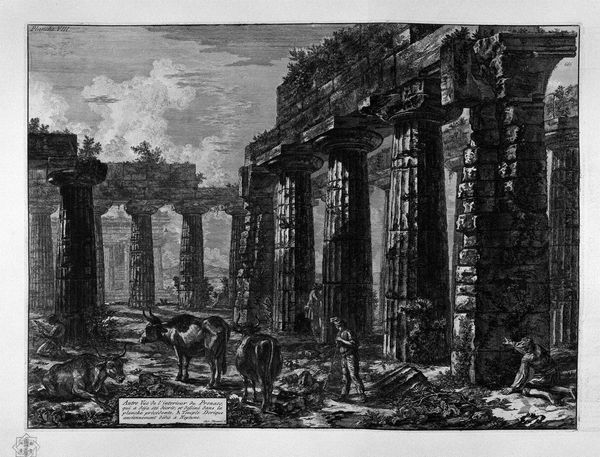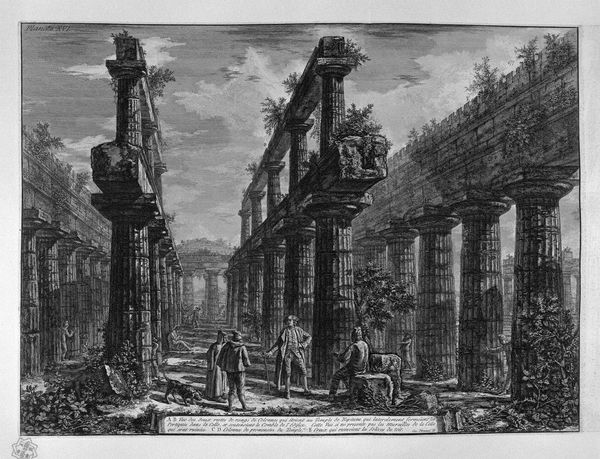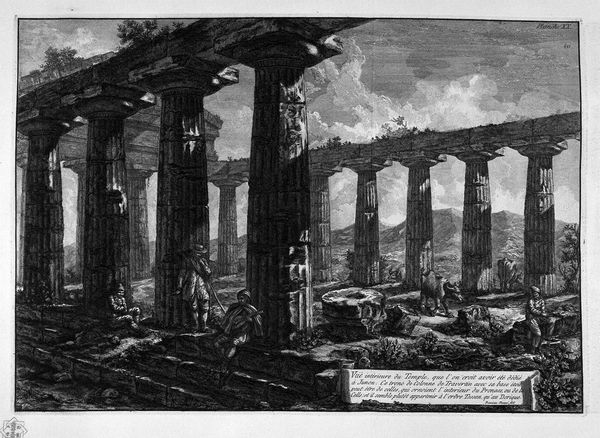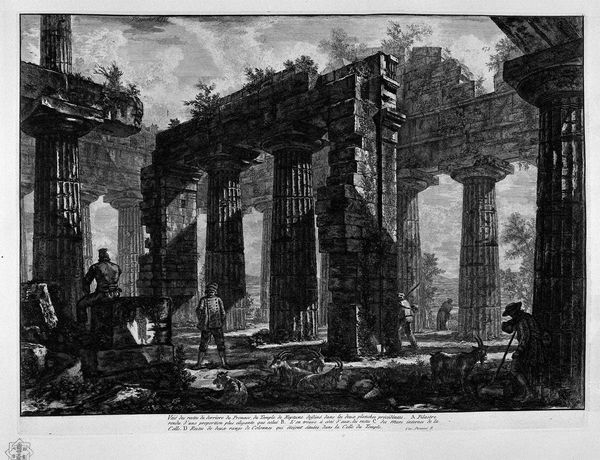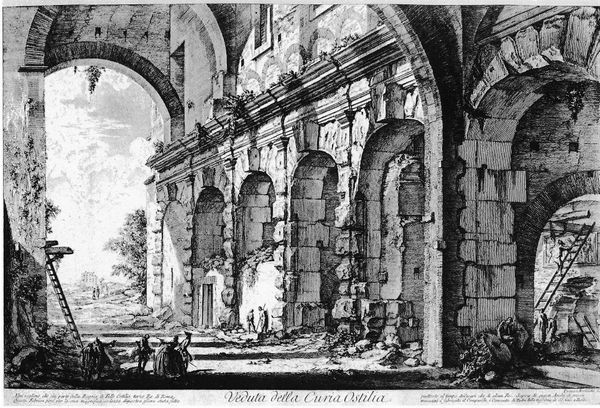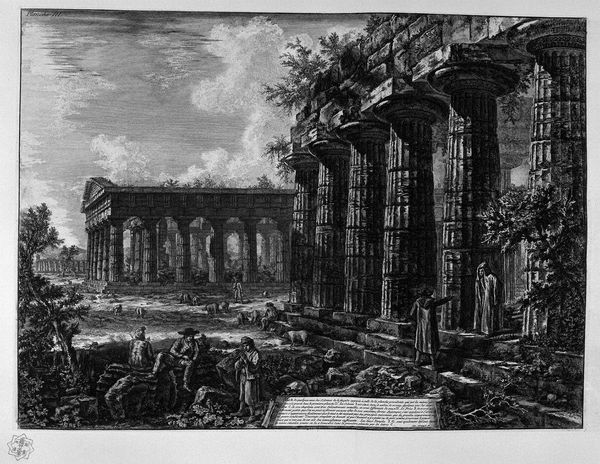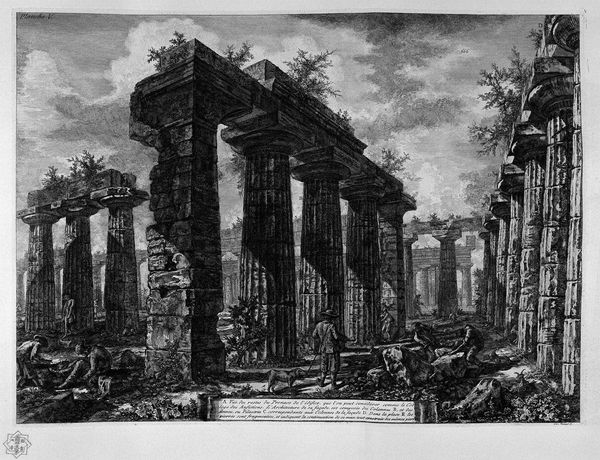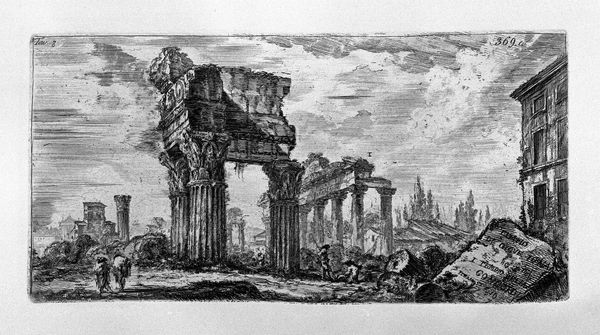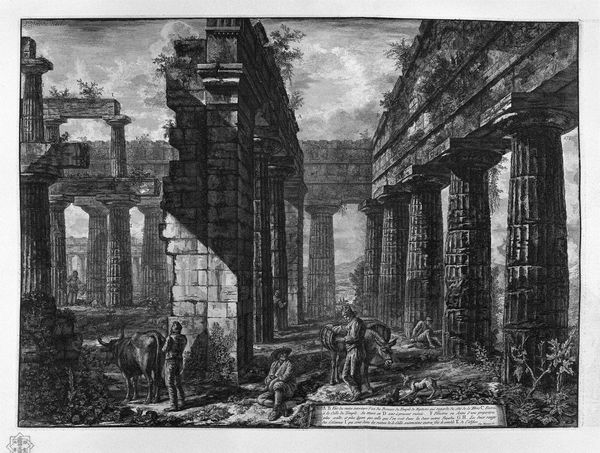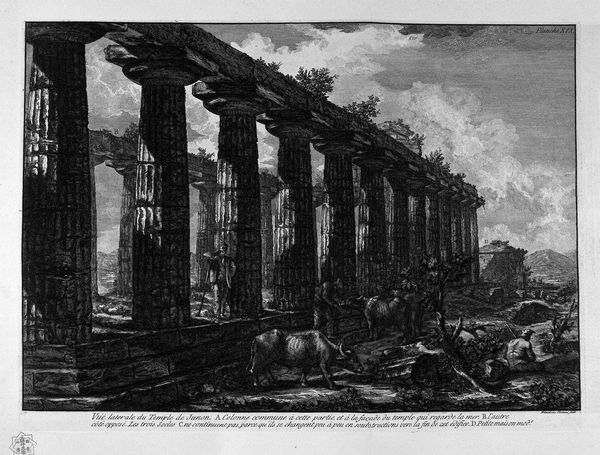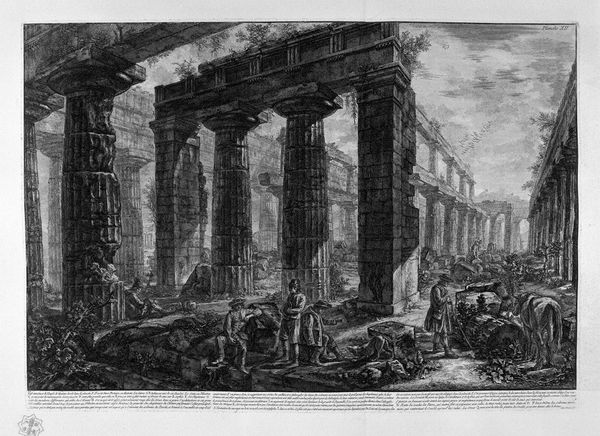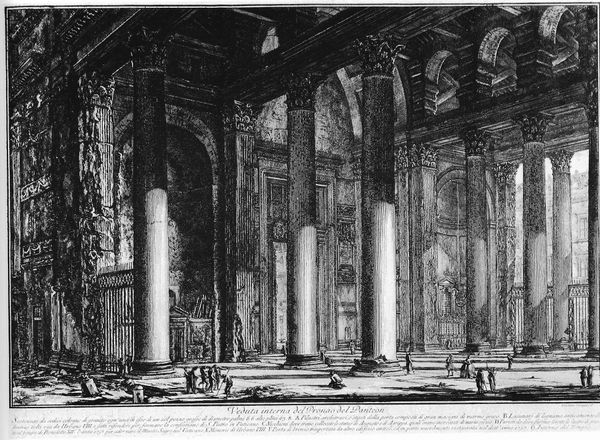
View of the Peristyle and the Door of the Temple of Vesta at Tivoli commonly called the Sybil
0:00
0:00
print, engraving, architecture
#
neoclacissism
# print
#
landscape
#
ancient-mediterranean
#
engraving
#
architecture
Copyright: Public domain
This is Giovanni Battista Piranesi's "View of the Peristyle and the Door of the Temple of Vesta at Tivoli," an engraving that captures the romantic allure of ancient ruins. Piranesi, working in the 18th century, was deeply influenced by the burgeoning interest in classical antiquity, but his Rome was also one marked by social stratification and political tension. He doesn't just depict the ruins; he reimagines them. Note how Piranesi frames the temple: crumbling yet imposing, a testament to a bygone era of Roman power, but look closer at the figures he includes in the foreground. They serve not only to give a sense of scale but also to remind us that the classical world is not removed but intersects with contemporary life. Are they admiring, working, or perhaps even scavenging in the shadow of this historical monument? Piranesi’s work invites us to consider how we engage with history and how the past continues to shape our present. In his words, he sought to "introduce a greater variety of parts, express more magnificence, and expand the scenes." Does it evoke a sense of longing, of the inevitable decay of even the grandest civilizations?
Comments
No comments
Be the first to comment and join the conversation on the ultimate creative platform.
